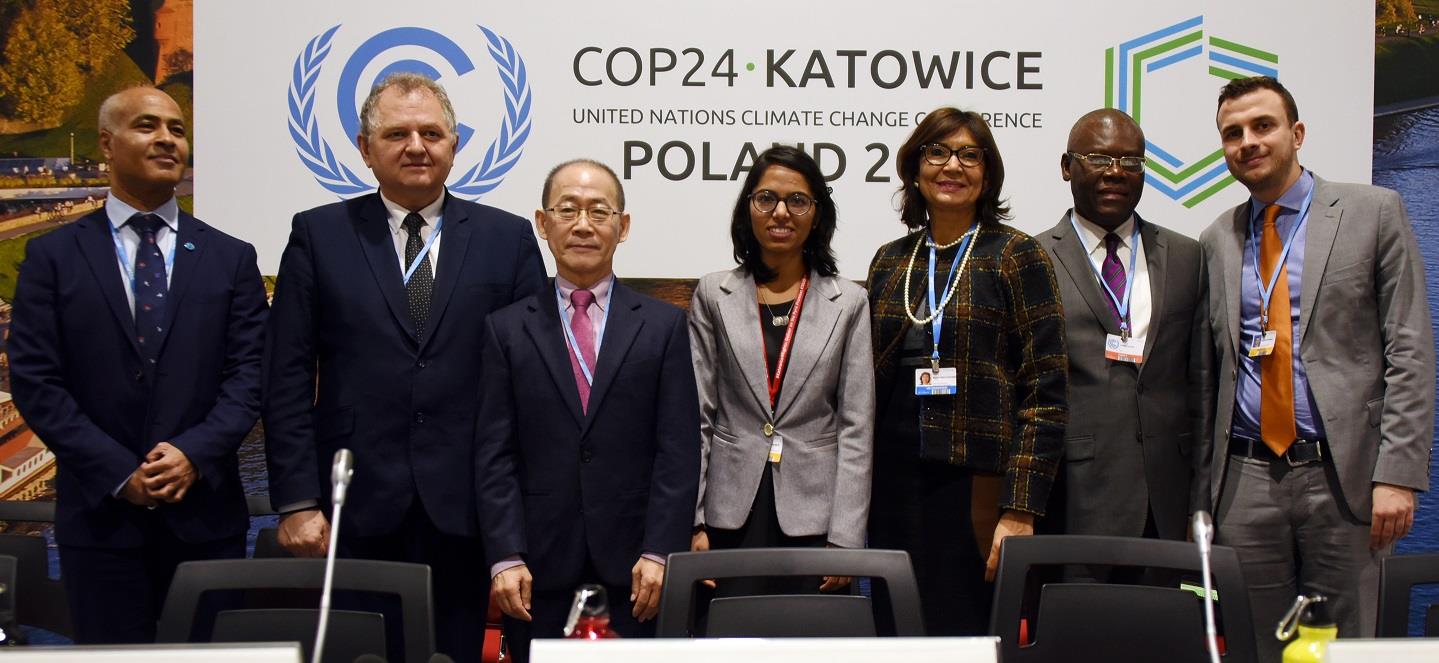Climate action: moving forward after COP24

Three years after the Climate Conference of Parties (COP21) concluded with the adoption of the historic Paris Agreement, delegates at COP24 in Katowice, Poland reached another key agreement, the ‘Katowice Climate Package’.
The 'rulebook'
This agreement, referred to as the ‘rulebook’, defines procedures and modalities on how the Paris Agreement will be implemented globally and supports work that FAO and countries are already carrying out.
Among a range of ambitious requirements, ‘the rulebook’ stipulates that countries shall communicate their Nationally Determined Contributions (NDCs) or climate actions every five years, as of 2020. They must also report on their greenhouse gas emissions, outlining climate change mitigation and adaptation measures, as well as details of financial support for climate action.
Aiming to build trust between parties, Governments are also expected to publish a transparency report every two years.
“This is a critical time for raising ambitions and taking greater action, which means that developing countries will need more support to meet both their climate commitments and report on progress made. FAO has been actively engaged in supporting countries to achieve this,” confirmed the FAO Deputy Director, Zitouni Ould-Dada on hearing that the ‘climate package’ had been adopted.
The ‘Climate Package’ or ‘rulebook’ comes at an opportune moment, just two months after the Intergovernmental Panel on Climate Change (IPCC) special report warned of the dangerous impacts if global warming continues and rises 1.5 °C above pre-industrial levels.
FAO's country support
FAO is helping countries to raise the ambition of their climate pledges, so they can collectively meet the goals of the Paris Agreement and comply with the rules of this Katowice Climate Package.
Working with countries and their governments over the last ten years, FAO has introduced approaches and measures to mitigate and adapt to the effects of climate change. During COP24 several publications and tools were launched, describing FAO’s ongoing work and providing guidance to countries to help them achieve the commitments detailed in their NDCs (See list below).
National Adaptation Planning
One example of how FAO’s work is helping countries to meet the provisions of ‘the rulebook’ is through the joint FAO/UNDP ‘Integrating Agriculture in National Adaptation Plans (NAP-Ag)’ programme. Since 2015, the NAP-Ag programme has been working with developing countries to identify and integrate climate adaptation measures into national planning. More recently the programme has been helping countries to establish enhanced monitoring and evaluation frameworks. Like other FAO programmes, involved in Monitoring & Measurement, Reporting and Verification (MRV), this will facilitate the reporting required by ‘the rulebook’.
The Koronivia Joint Work on Agriculture
The Koronivia Joint Work on Agriculture (KJWA) also supports the NAP process. In partnership with other actors in the climate and development process, FAO is working to support the development and implementation of the KJWA building on the first in-session workshop which took place at COP24 in December last year. Other workshops will be held this year where countries and organizations will be invited to share their views on how to assess adaptation and improve soil carbon, both of which are mentioned in ‘the rulebook’. These submissions to the UN are likely to evolve into more concrete actions at the next UN Climate Conference in June.
Thematic Working Group on Agriculture, Food Security and Land Use
Commended at COP24, FAO’s Thematic Working Group on Agriculture, Food Security and Land Use under the NDC Partnership is a unique country-led, peer to peer network established in 2017. The Working Group gives countries and international organizations the chance to consult one another and to share experiences and challenges related to the implementation of NDCs and reporting. Given the new requirements of the Katowice climate package, this will be valuable for countries helping them to improve their reporting and update their climate plans.
Climate action, a cross-cutting theme of FAO’s Strategic Framework, is integrated into a wide range of its projects and programmes. FAO will continue to be actively engaged in the international climate action agenda throughout 2019 and beyond, including at the High Level Political Forum, the UN Climate Summit and COP25.
At the upcoming 50th sessions of the UNFCCC Subsidiary Bodies (SBI50 and SBSTA 50) from 17-27 June 2019, FAO will take part in the negotiations and discussions, continuing to support countries in implementing the Paris agreement.
Publications and tools launched during COP24:
Koronivia Joint Work on Agriculture: Analysis of Submissions
Koronivia Joint Work on Agriculture and the convention Bodies: an overview
A Preliminary Review of Agriculture-Related Activities in the Green Climate Fund Portfolio
Climate-Smart Agriculture Case studies 2018. Successful approaches from different regions
Open Foris Collect Earth Online – geospatial tool (Forests monitoring)
4 CSA e-learning modules on water, soils, crops and livestock
